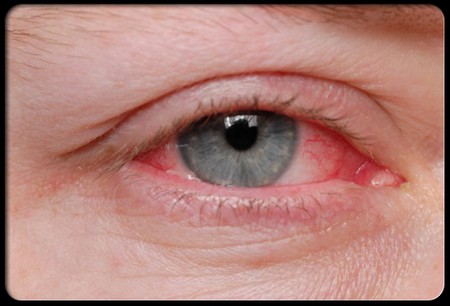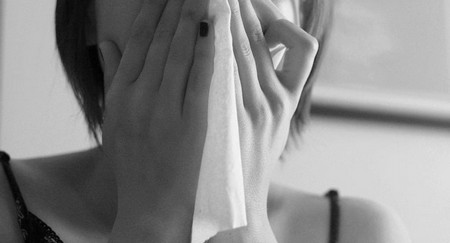When you’re suffering through the itchy eyes, runny nose, sneezing, and general discomfort of an allergy attack, don’t blame your body — it’s just doing its job. These symptoms are actually a sign that your immune system is protecting you by fighting off invaders, learn more at https://allergenchecker.co.uk/. But these substances aren’t life-threatening bacteria or viruses; they’re ordinary things like grass pollen, dust, animal dander, or mold spores.
Your immune system makes antibodies to defend you against foreign substances — in this case, allergens — that invade your body. To fight the invaders, your antibodies send out chemicals such as histamines, which, unfortunately, irritate and inflame your tissues. A lot of this activity takes place in your eyes, nose, lungs, stomach, and intestines, which is why you end up with itchy eyes, sneezing, runny nose, and sometimes, vomiting and diarrhea. When you’re feeling miserable from these constant battles, here are some tips that can help.

- Find the culprit. The first step in fighting your allergy is to figure out what is causing it. If you have a sneezing fit every time you get near a cat, chances are the cat’s the problem. If your eyes itch and your nose runs when you walk into a certain room, you may be allergic to dust mites, microscopic animals that thrive in dust. Sneezing and sniffling in the spring and fall probably means seasonal allergies, known as hay fever. Your doctor can help you figure out which allergen is bothering you. An allergy skin test or a blood test can usually pinpoint just what’s causing your misery.
- Get some relief. If you reach the point where you just can’t stand the sneezing and itching, you may need to turn to medication. An over-the-counter antihistamine will knock out those bothersome histamines, but it may knock you out as well. If so, get a prescription for one that won’t make you drowsy. Decongestants can help relieve your stuffy nose, but if you get a nasal spray, you shouldn’t use it for more than three days at a time. Saline spray can safely relieve a dry, itchy nose. For hay fever, prescription steroid nasal sprays work wonders. Ask your doctor about trying them. If your allergies come back every year, you may want to consider immunotherapy, a method in which you gradually get desensitized to the allergens that bother you. It is a series of shots given over several allergy seasons. After two or three seasons, you may be able to live more comfortably with your allergy.
- Have a cup of joe. If you have hay fever, drinking more coffee may help you breathe easier. A California study of people with hay fever found that taking caffeine helped relieve allergy symptoms. Just be sure to weigh the side effects of coffee against the good effects if you decide to go for that extra cup.
- Try some vitamin C. You heard it could cure the common cold. Now some doctors believe it may be the best treatment for seasonal allergies. Even if you already take a vitamin C supplement, you might want to increase your dosage and see if it helps. Doctors recommend taking 500 milligrams (mg) up to 4 grams (about a teaspoon) a day. Try it in a powdered form mixed into fruit juice or a carbonated drink. But if you take large doses of vitamin C, only do so for a week or two when your allergy is at its worst. And if you have high blood pressure or kidney problems, look for vitamin C without sodium ascorbate, a form of salt.
- Get help from honey. Another treatment for seasonal allergies may be as near as your neighborhood grocery store. Honey made in local hives contains traces of pollen from surrounding plants. If you regularly eat local honey, you’re desensitizing yourself to seasonal allergens the same way that immunotherapy does. You need to take one to three teaspoons of honey a day for an extended time (no one knows exactly how long) to get the sweet benefits.
- Watch the wine. If you tend to have allergies or sinus problems, it’s probably a good idea to stay away from red wine. Red wine makes your blood vessels expand, causing sinus pressure. That, in turn, causes fatigue and other allergy symptoms. If you want to drink wine, stick to white or blush instead.
- Pick your pets. If you’re considering a pet, skip the fluff and fur. Pet dander and fleas are common allergens for allergy-prone people. Your best pet bets are fish, turtles, frogs, lizards, and sand crabs.
- Care for kitty or pooch. If you’re one of the millions of people who already own a dog, cat, or other furry of fluffy pet, you need to take extra care to keep your pet from contributing to your allergies. Here are some things you can do:
- Keep your pet outside. A fenced yard, along with a sturdy house or a warm garage, should be plenty of shelter for your animal companion, especially if he makes you sneeze and sniffle when he stays inside.
- Get your pet treated for fleas. It may actually be the fleas you’re allergic to instead of the dog or cat. Your vet has effective flea treatments available.
- Bathe your pet often, or have someone else do it. This will cut down on the amount of hair and dander that float around in the air, ready to cause your allergy symptoms.
- Change the filter in your home’s cooling or heating system often. Also consider putting filters inside your heating and cooling vents to trap more allergy-causing pet particles before they blow back into the rooms of your house.
- Close those windows. Spring and fall are the best times to ride in your car with the top off, the sunroof open, or the windows down. These are also the worst times of year for allergy sufferers. Riding in an open car simply exposes you to more allergens, and the blowing air forces more of them into your eyes, nose, and throat.
- At home, you may be tempted by beautiful weather to fling your windows wide open to enjoy the fresh air. The breeze may feel wonderful, but you’ll pay a price with more sneezing and sniffling. Let the heating and cooling systems in your car and home do some of the dirty work for you and filter out the dust, pollen, and other outside allergens that make you suffer. Enjoy the beautiful spring and fall weather with your windows closed, and you’ll greet it with a smile instead of tears.

- Protect yourself in the yard. If you can, invest in a professional dust mask — the kind carpenters use in their workshops. If you can’t find one, go to your local discount store and get a package of disposable filter masks you can wear whenever you do a job that exposes you to pollen, mold, or dust. They’re inexpensive, and they’re good insurance for keeping your gardening and grass cutting chores from becoming an introduction to allergy misery. A pair of sunglasses, especially the kind that wrap around your eye area, will do a good job of protecting your eyes from allergens. The best time to schedule outside chores is probably mid-morning. In the early evening, pollen is worse as it’s settling to the ground.
- Wash up. If you’ve been working in the garden or just spending time outside, your clothes are likely to be full of pollen and dust. Take them off and wash them when you come inside, and you’ll get rid of a big source of allergens. Your hair acts as a magnet for pollen and dust, so wash it before you go to bed to get a more comfortable night’s sleep.